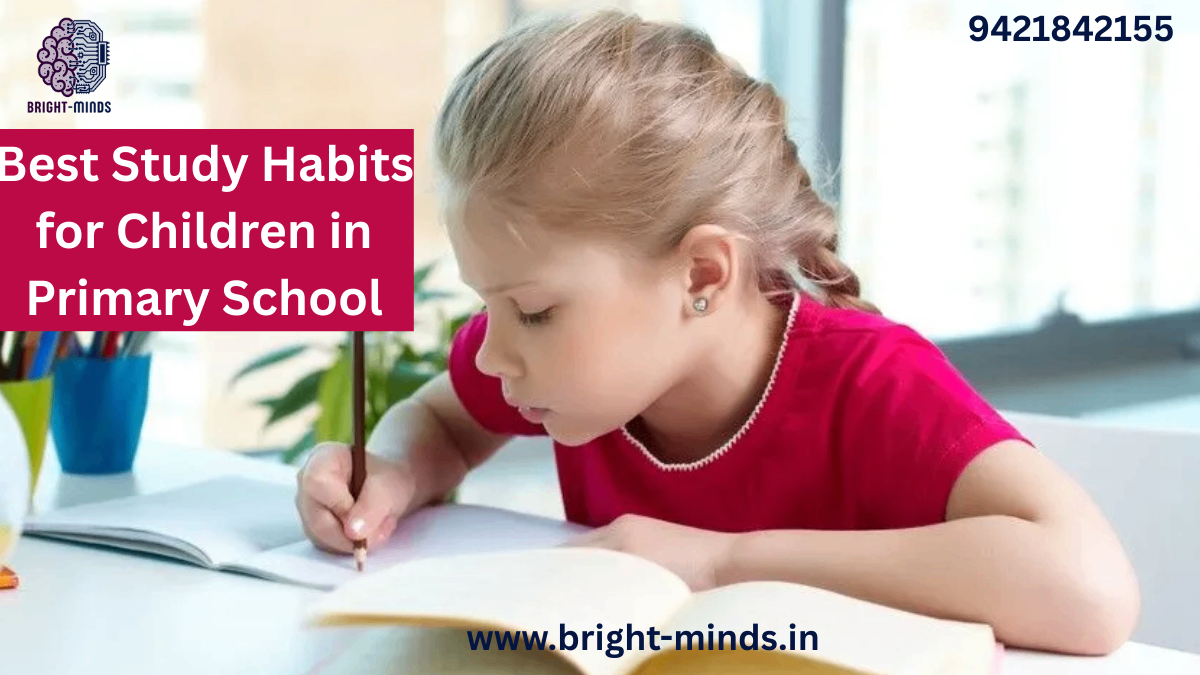📚 Best Study Habits for Children in Primary School
Let’s face it: building good study habits early in life can feel like trying to teach a puppy to sit still. But here’s the secret — when you make studying a positive, consistent, and even fun experience, children don’t just succeed academically — they develop skills that will carry them through life.
If you’re a parent, teacher, or education-focused company, you already know that primary school years are the foundation of a child’s learning journey. It’s the time when curiosity blooms, routines start to stick, and habits form that can shape their future — in school and beyond.
In this blog, we’ll explore why study habits matter, how current market and industry trends are evolving around early education, and give you practical, proven tips to help children thrive from the start.
🧠 Why Study Habits Matter in Primary School
Primary school children are still learning how to learn. While they’re absorbing knowledge, they’re also forming mental routines, self-discipline, and organizational skills.
Strong study habits at this stage can:
- Improve academic performance
- Reduce stress and anxiety around schoolwork
- Foster independence and responsibility
- Develop a positive attitude toward learning
And here’s the kicker — good study habits don’t just help with grades. They lay the foundation for financial literacy, time management, problem-solving, and long-term success in adulthood.
📈 Market Trends and Industry Insights
The early education space is evolving rapidly. Let’s take a look at how the industry is responding to growing demand for effective study tools and support systems:
- According to recent reports, the global education technology market is expected to surpass $400 billion by 2030, with a significant chunk dedicated to primary education tools.
- More parents and educators are turning to interactive learning apps, gamified study platforms, and behavioral learning programs.
- Hybrid learning (a mix of traditional and digital methods) is now the norm in many countries, making self-directed study skills even more important for young students.
- Employers and educational leaders are pushing for a lifelong learning mindset — and that starts with habits formed in the early years.
If your company offers educational resources, coaching, or content, focusing on building study habits for primary-aged children can create long-lasting impact — and market value.
📝 Practical Study Habits That Actually Work
So how do you teach children the right way to study — without making it feel like a chore?
Here are some child-friendly, real-world-tested study habits that truly make a difference:
✅ 1. Create a Consistent Routine
Children thrive on structure. Set a regular time and place for study — even just 20–30 minutes a day.
💡 Example: “Homework happens right after snack time, at the kitchen table.”
✅ 2. Keep the Study Area Distraction-Free
Designate a quiet, clutter-free zone with minimal distractions. Bright lighting, basic supplies, and a comfortable seat go a long way.
📱Tip: Keep phones and tablets out of reach unless they’re part of the learning process.
✅ 3. Break Study Sessions Into Chunks
Use the Pomodoro Technique — 20 minutes of focused work, followed by a 5-minute break. This improves attention span and avoids burnout.
✅ 4. Use Active Learning Techniques
Help kids engage with content actively through:
- Drawing diagrams
- Using flashcards
- Teaching the concept back to you (this builds memory!)
- Using songs or rhymes for hard-to-remember facts
✅ 5. Encourage Goal Setting
Teach children to set small, achievable goals:
“I’ll finish my spelling worksheet before dinner.”
“I’ll read 5 pages of my book every night.”
This builds discipline and confidence — key traits for success in school, and later, financial decision-making.
✅ 6. Celebrate Effort, Not Just Results
Praise persistence, creativity, and improvement — not just perfect scores. This fosters a growth mindset.
🎉 “You kept trying even when the math was tough. That’s what matters!”
✅ 7. Encourage Curiosity
Children are natural explorers. If they ask questions, follow their lead. If a topic excites them, look up a video or do a mini-project together.
✅ 8. Balance is Key
Learning is important, but so is play, rest, and social time. Encourage well-rounded routines to avoid burnout and build emotional resilience.
🌍 Real-World Application: Why This Matters
Whether your child becomes a doctor, designer, or data analyst, they’ll rely on the same core habits they build today:
- Managing time wisely
- Staying organized
- Setting and reaching goals
- Learning from mistakes
- Adapting to new information
These are the same habits that drive financial literacy, career success, and lifelong learning. By helping primary students develop these habits now, we equip them to face the challenges of tomorrow with confidence.
🧭 How Companies Can Support Early Study Habits
If you’re part of a company focused on child development or education, this is your opportunity to embed habit-building strategies into your offerings:
- Design programs that incorporate daily routines
- Add habit-tracking tools to your apps or kits
- Provide parent guides for building home-study plans
- Offer gamified rewards systems that reinforce consistency
You’re not just providing educational content — you’re shaping a child’s long-term learning behavior.
🚀 Ready to Build Better Habits?
At [YourCompanyName], we believe that every child deserves the tools to succeed — and it all starts with smart study habits. Our expert-designed programs and interactive learning resources are tailored for primary school students, helping them build confidence, discipline, and a love for learning.
👉 Explore our beginner-friendly study kits, online tools, and habit-building courses today.
Whether you’re a parent, teacher, or company leader — now is the time to build a brighter future, one habit at a time.
🎯 Final Thoughts
Great learners aren’t born — they’re built. By helping children form effective study habits in their primary years, we set them on a path toward academic success, personal growth, and financial literacy.
Let’s empower the next generation to study smarter, dream bigger, and lead with confidence.
You may also like this:-

